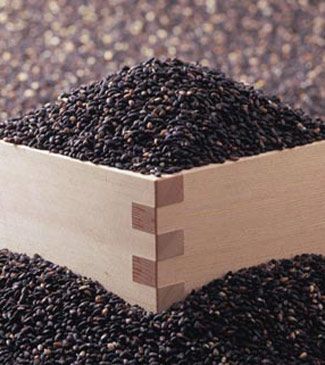Although constipation is not a major illness, it has caused headaches for many people. A survey in Japan showed that 50% of women and 25% of men are often trapped by constipation. In this regard, Japan's “MSN†website interviewed a nutrition expert and the author pointed out that there are six types of foods that can effectively prevent constipation and can usually be eaten more. Sesame, almonds and other foods rich in magnesium. A joint study by the National Institutes of Health Nutrition and the Women's Nutrition University showed that people with low magnesium intake are prone to constipation. Magnesium has the function of diarrhea and softening of feces. A moderate amount of ingestion helps to relieve laxativeness. Foods rich in magnesium include peanuts, brown rice, walnuts, and bananas. Kimchi, fermented soy sauce and other foods rich in plant-based lactic acid bacteria. Lactic acid bacteria have the effect of adjusting the intestinal environment and eliminating constipation. However, the lactic acid bacteria are divided into two categories, animal and plant, and the latter can play a role in preventing constipation. Because the latter is more acid-resistant than the former, it can reach the intestinal tract and play its role, and the survival rate of the latter in the intestine is 10 times that of the former. Asparagus, onions and other foods rich in oligosaccharides. Oligosaccharides, also known as oligosaccharides, are a type of carbohydrate that have a relatively low degree of polymerization. Studies have found that oligosaccharides can increase the bifidobacteria content of breast milk and help regulate the intestinal environment. Foods rich in oligosaccharides include garlic, coffee, corn, honey, and various kinds of soy products. Green pepper, kiwi and other foods rich in vitamin C. Vitamin C in the intestine is one of the foods of lactic acid bacteria, which can increase the number of probiotics and indirectly prevent constipation. Vitamin C-rich foods are fresh dates, oranges and green leafy vegetables. Olive oil, sunflower oil and other foods rich in oleic acid. Oleic acid has emulsification, which can soften the intestinal faeces and promote defecation. Foods rich in oleic acid include sesame, peanuts, almonds, walnuts, and other nuts. Dietary fiber-rich foods such as whole grains and vegetables. Dietary fiber is divided into two types: water-soluble and insoluble. The former can soften the feces, increase the number of intestinal probiotics, and adjust the microecological balance in the human body; the latter can absorb water in the intestinal tract to stimulate the intestinal wall and accelerate intestinal peristalsis. Absorb harmful substances and excrete them. The foods rich in these two kinds of dietary fiber include various kinds of coarse grains, such as brown rice, red beans, mung beans, kidney beans, etc., bacteria and algae foods such as fungus, kelp, and mushroom, and various fruits and vegetables such as tomatoes, burdock, and apples. Wait. LED Glass tubes T8,Luminaire LED T8,High Output LED Glass Tube Ningbo Wellway Optoelectronic Technology Co.,Ltd , https://www.wellwayopto.com